Life
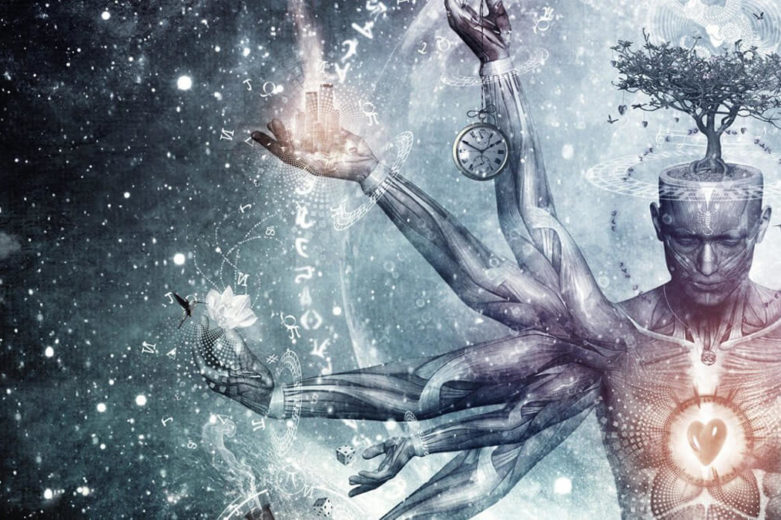
Reign of Error
When our beliefs and expectations influence our behavior at the subconscious level, we are enacting what is known as a self-fulfilling prophecy.
A more formal definition of self-fulfilling prophecy is: A false definition of the situation evoking a new behavior which makes the originally false conception come true.
Sometimes a belief brings about consequences that cause the reality to match the belief. Those at the center of a self-fulfilling prophecy don’t usually understand that their belief caused the consequences they expected or feared. When we believe something about others, we may act in ways that encourage them to confirm our assumptions, thus reinforcing our beliefs about them.
Self-fulfilling prophecies often manifest themselves within cycles. If the behavior is negative, then you have what is commonly referred to as a vicious cycle.
If you expect the battle to be insurmountable, you’ve met the enemy. It’s you.
– Khang Kijarro Nguyen
In communication, an example of a self-fulfilling prophecy is when someone thinks that communicating with someone is not something they can do or perhaps not worth it. By not communicating, they confuse the person or even push them away. This result brings them to the assumption that they were right… communication couldn’t work and didn’t work. Ultimately however, they created this illusion.
In education, when a teacher is given a high opinion of a student, they are more apt to give that student the energy and focus they need because they see them as a low-risk, high-reward endeavor. On the flip side, if a teacher has an expectation that a student is a troublemaker or more likely to fail, they may shy away from spending too much energy and focus on them, thus inadvertently giving that student a higher likelihood of failure. I’m not saying all teachers do this and when it does happen, they usually aren’t even aware it’s happening.
In interpersonal relationships, an example of a self-fulfilling prophecy is when someone forms an opinion that a person is a creeper or stalker. Next, they put this person under a microscope and in some cases even stalk the person whom they mistakenly perceive as being a stalker. Ultimately, they’ve convinced themselves that the person is a stalker so assuredly anything the person does, e.g. writing poetry, visiting a familiar restaurant, or shopping at a certain grocery store, is proof that they are a stalker. I’ve seen this happen to others and experienced it myself, as I was on the receiving end of a self-fulfilling prophecy, created by someone who refused to communicate and love.
The self-fulfilling prophecy is, in the beginning, a false definition of the situation, evoking a new behavior which makes the originally false conception come true. The specious validity of the self-fulfilling prophecy perpetuates a reign of error.
– Robert K. Merton
I can speak to these things from personal experience as others have self-fulfilled prophecies against me. Likewise, I have self-fulfilled prophecies against myself and others. We’ve all done this, yet many don’t even realize they have. It’s very dangerous, but I think the more we can introspect our motivations and feelings, the better chance we have at avoiding these types of things. I believe self-absorbed and narcissistic people are more prone to self-fulfilling prophecy because they believe they are never wrong, and their focus always starts with themselves.
I also believe if we are willing to communicate openly with others, then we are less likely to form misguided opinions and I believe this lowers the risk of self-fulfilling prophecy.
A major way we can fight negative self-fulfilling prophecy is to surround ourselves with positivity. That means we must turn off the news. We must free ourselves of people who mentally and emotionally take us to negative places. We must turn off music that depresses us. We must remove ourselves from social media and/or digital negativity. We must eat, sleep, and drink positive things. We need a daily routine that shuns negativity. We need healthy stress relief. Finally, we must allow the right people to enter and leave our life.
There is a science behind it and we must be intentional about it.
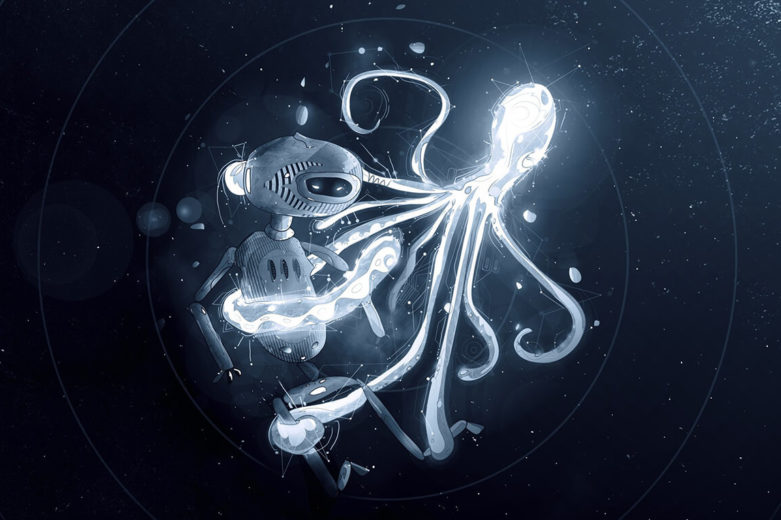
The Ink
The octopus emerges fluidly and slowly from a tiny crevice in the wavy ocean floor littered with sand. A beam of light powers its way down from the surface, illuminating anything in its path. Skeptical, the octopus treks cautiously and slowly through a clear, aqua-blue, salty water in search of purpose. As a defense mechanism, the octopus exudes a dark, milky ink-like substance from its glands as potential enemies approach. The ink disorients and subdues the senses of any creature nearby, allowing the octopus to continue its journey for purpose.
Guiding the octopus are eight long, flowing arms with suction cups beneath, each of which serves a different purpose. They all work harmoniously, but disparately in fulfilling the needs of the octopus. I like to refer to them as the Eight Arms of Ardor.
Arm 1, the Right Arm of Imagination, tells stories of intrigue and mystery, of joy and of pain. Each line, each turn, and each picture are part of a bigger story. It starts conversations. It tells each story through a riddle of sorts. It’s not always forthcoming with information and the picture is not always clear.
Next is Arm 2, the Left Arm of Ferocity, which protects those around it with intensity and flare. It knows they all deserve better. It offers rewards for courage and presents a path to freedom. It’s prepared to fight for continued life at all costs, even if that means bloodshed.
Continuing, Arm 3 is the Right Arm of Impetuous, which is impulsive and reacts on a whim. It’s addictive and a bit unhealthy. It attaches itself, like suction cups to whatever draws near, and it keeps coming back for more, with no end in sight.
Arm 4, the Left Arm of Exclusivity, embraces its individuality, its uniqueness. It mesmerizes with glowing visions never seen. It is the showman of the bunch and it understands its place. It knows it has great potential and star power.
Then there is Arm 5, the Right Arm of Agony, which gets high from the pain and gains pleasure through repeated discomfort. It perseveres and grows through adversity. Like a phoenix it rises above the flames. It holds the pain and is willing to share the stinging, swelling, soreness, and sickness with anyone who dares approach.
Back to the left we have Arm 6, the Left Arm of Suppression, which covers all the scars with a mask of redirection. It conceals the pain and is glad to pretend that nothing ever happened, even to the point of self-absorption.
Next is Arm 7, the Right Arm of Memorialization, which commemorates a lost friend or loved one through words, symbols, pictures and subtle reminders, so they never fade from memory. It grabs hold and won’t let go. It clinches tight and never wants to forget. It preserves.
Finally, Arm 8, the Left Arm of Simulation falls in line with what all the other arms are doing. It falls victim to this copy-cat culture, which is void of originality and creativeness. It can be of use, but only if what its copying is useful.
The arms of the octopus are wondrous and work with each other in one beautiful aesthetic where form meets function. This creature is a combination of grace and savagery, dancing about through peaks and troughs, on upside down waves. Its stories carry pain, sadness, grief, and anger, while also providing comfort, elation, delight, and bliss. This creature is a beautiful work of art.
The Ink.

Ignoble Oaf
We’re bad-asses until humility slams through the door, confusing our feelings, disarming our motivations, and electrocuting our souls. Arrogance grabs hold.
A sudden and overwhelming feeling of helplessness falls upon us, around us, and within us. The insecurities shoot through our bodies and our souls like rods of light, piercing us, paralyzing us, and stunning us. We shake, intensely, but only for a moment. This is shock.
We think back… looking, searching, begging for the pattern which led to this point. We’re unable to fully envision this complex picture, which brings in frustration and causes us to flounder as we fluctuate between reality and imagination. We reflect until we’re blue in the face.
We simply don’t want to accept the state to which reality has brought us. We reach for the delusion or misapprehension which our mind has painted so vividly for us, but we deny it. It can’t be true. Can it?
Eventually, we are forced to accept reality. We thought we were on top of the world, but now we realize that we are so incredibly fragile and we begin to cede control to that which shoves us into submission.
Finally, we realize that there was another course plotted for us. What we thought we knew. Where we thought we’d go. It was all just an illusion. The strings that bind us take control and we’re brought to our knees.
Humility, it seems, is a dominant master.

Too Easy
Over the years I’ve heard people say, “I don’t care”. A good friend recently told me that he didn’t care what people thought. I thought it was silly for someone of his intelligence to come across with such a myopic attitude, but OK, whatever. He said he liked people, he just didn’t care about their opinions. He’s a good friend and I get him. We just process differently. Another person told me they didn’t care about me or what I thought. Hmm, that’s pretty cold. My rebuttal… then why are you talking to me? If you literally do not care, then why in the world are you wasting one millisecond of your glorious life to show me ANY attention.
It’s almost hysterical to me, if not extremely sad (seriously), when someone tries to impress upon me their intentionality of not caring. The thing is, it’s weak. It’s weak in the sense that “not caring” is just too easy. It takes no energy. This is certainly debatable, especially for a feeler like me with whom caring is a natural tendency, but as I think about it more, it still takes energy to care, in my opinion.
The thing is, I don’t always care what people think, but I don’t feel the need to exude this pithy, sometimes arrogant, opinion upon them. It’s rude, it’s weak, it’s (a bit) cold, and anyone can do it. Congratulations to them for not caring. I want them to try caring for a person when they (themselves) have absolutely no binding to that person’s judgement, then tell me how much they don’t care. You see, it’s easy to “not care” when someone feels like there is nothing in it for them, but the moment they need something, all of the sudden caring is a real thing. All of the sudden it means something to them. They flip.
I also don’t remember a time when caring hurt someone. It’s a low risk, high reward emotion that requires zero human interaction. Caring is inside us, which is what makes it real. The moment it’s put into action, it’s something else, but caring dwells within our souls, in the spiritual realm.
It’s very hard for me to express what I’m thinking sometimes, so if you are reading this and you are confused as to the point I’m trying to get across, let me just say this: If you don’t care and have no desire to care, that is fine. If that is your personality, that is legit. I buy that. But… don’t act like “not caring” is some great thing you’ve worked hard at or some fascinating feat you’ve achieved, because I don’t buy it and neither do a lot of other people. It’s just too easy. I’m sorry, but I’m not impressed.
I know only a very small number of people will relate to what I’m saying. Others may simply disagree. Some will likely be utterly confused. That’s fine. LOL. My hope is it will open up a new vantage point where you can at least consider another perspective. That’s really how most of my writings are intended anyway.

Exaggerated Sense
I’ve been around for a while and if there’s one thing that has become abundantly clear to me it’s that people are self-absorbed and many of them portray narcissistic behavior. I know “narcissistic” is a strong word, but Merriam-Webster actually has a strong definition for this strong word – extremely self-centered with an exaggerated sense of self-importance. I love that definition because it ties narcissism to self-absorption in a clear and powerful way.
I know this is cliche, but people literally think the world is here, people are here, animals are here, [whatever] is here to serve them, to literally ensure that their comfort and their happiness is top priority, and if things don’t go their way then they go on the prowl. How do I know this? Because I see it everyday and even more so, I feel it! These people seek out victims. I’ve been a victim of this preposterous behavior more than I care to express, on numerous occasions. Self-absorption offers an arduous challenge for someone who is naturally and deliberately empathetic.
I hate to be the bearer of bad news, but you’re not that important in the big scheme of things and neither am I. I wish things were different, but they’re not. Sorry, I didn’t make the rules. When self-absorbed people feel this reality, it makes them feel very helpless. I’m not going to go “all biblical” on you here, but that’s where my mind is.
Self-absorption offers an arduous challenge for someone who is naturally and deliberately empathetic.
On the flip side, these same people will treat you like a dog and not blink an eye. As I’ve written about previously, I know we all have different pasts and experiences that shape us, but you’ll have an impossible mission selling that to me as an excuse. I simply do not accept it. When I hear people use their past as an excuse, I feel for them, I honestly do. I can’t not feel for them, but I too have had terrible, honestly unspeakable, things happen to me, things that are completely out of my control. I’ve been attacked throughout my life in a plethora of ways, yet I refuse to allow these things to control me to the point where I treat people like dogs.
People have even said to me, “Matt, you’re at a huge advantage because you’re naturally a nice person. Not everyone processes like you.” The truth is I have to work extremely hard at being empathetic to people. It doesn’t come for free. Let me repeat. It doesn’t come for free! I have skin ripping, head crushing battles with myself over this matter. It is taxing, but we cannot give in to the temptation of making everything about us. It’s not about us. It’s about them, about “others”.
Take a long look in the mirror today. You are awesome! You are an incredible being, but so are billions of other people. You should stop looking at yourself and your greatness so much and start realizing that we’re all in this together and other people are great too and have so much to offer and some of them need you to not make it all about you for a change. Guess what else, you can learn things from other people. There’s nothing more valuable than gaining an additional vantage point (i.e. perspective). Perhaps if people tried this simple exercise, they wouldn’t be so miserable and might actually contribute to society instead of tainting it with self-absorption and narcissism.
Other people are great too and have so much to offer and some of them need you to not make it all about you for a change.
Can you say to someone, “You’re not the victim”? No. I do not believe anyone can say this because they simply do not know. The narcissist says, “I’m the victim!”, because they do not see beyond the outer wall of their bubble. So, how can you become a person who is not self-absorbed? It’s simple. Do something unselfish for someone. Do something that gains you absolutely nothing. In fact, maybe even do something that puts you in a bit of discomfort and isn’t convenient (for you). Travel a long distance or cancel a meeting. Skip a meal. Start by doing this once a month. Then, work up to once a week, and so on. You literally have nothing to lose.
Liberation awaits you with open arms. It calls to you, “Let Go! Let go of you! Look at them! Come to me! Be free!” Do you want to be free, free of yourself? Think of the all the pressures you would release. Think of the lives you could change. I don’t mean to end this like a sermon, but take that first step today. Try it, then try it again.
You will not regret it.
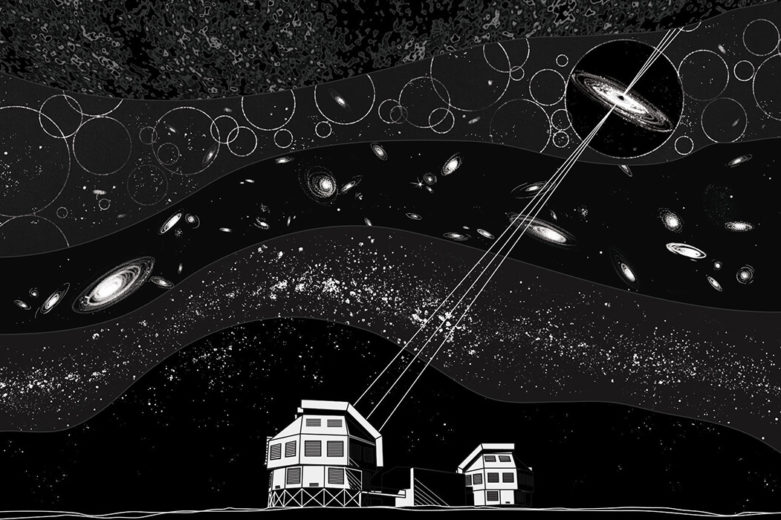
Black Hole
When I withdraw to my room, I often feel like they (my family, friends, whomever) want me to come out. So, I sit there and I think, “How long can I stay here?” The longer I stay here, the less time I have to be somewhere else. It’s a safe place and a sad place, but also a happy place. Go figure. Usually if I’m not withdrawn to my room, it’s because I feel guilty about the very idea of being withdrawn.
People have asked me what I think about when I’m alone. I think about people. I think about projects I’m working on or projects I want to start (one at a time please). I think about the world and all the sadness in it and how I could possibly make a grand-scale, positive impact. It feels overwhelming, but honestly I see myself making a major impact and I even have a pretty good idea of how. I just don’t know if I can. It’s not something I wish to share, but it’s on my mind. Perhaps it’s even in motion already. Who knows.
I need to meditate more. I need to pray more. When I’m alone, I need to stop thinking. My mind rarely stops thinking though. Trying to make a busy mind stop thinking is like that scene in one of the Spider-Man movies when he’s trying to stop that train and his suit literally starts ripping at the seams. The thoughts are the train and Spider-Man’s suit is my mind. It all just starts ripping apart.
Sometimes, withdrawal is just a way to deal with anxiety. It involves finding a quiet place where I can just breathe for a moment. I’ll just sit there or lie down until the feeling of nausea goes away. In those moments, there isn’t as much productive or creative thinking going on as much as there is just fear. Fear that everything will spiral out of this tightly wound knot that I carry with me and inside me everyday. That’s the fear. That’s one of my fears.
Quiet places are nice. Having no distractions is beautiful. Being able to take five minutes to do something that I need or want to do is wonderful. So while my people probably see this withdrawal as some sort of black hole, I just see it as a moment in time where I get my energy back, so I can be the person I need to be for those who need me to be that person.
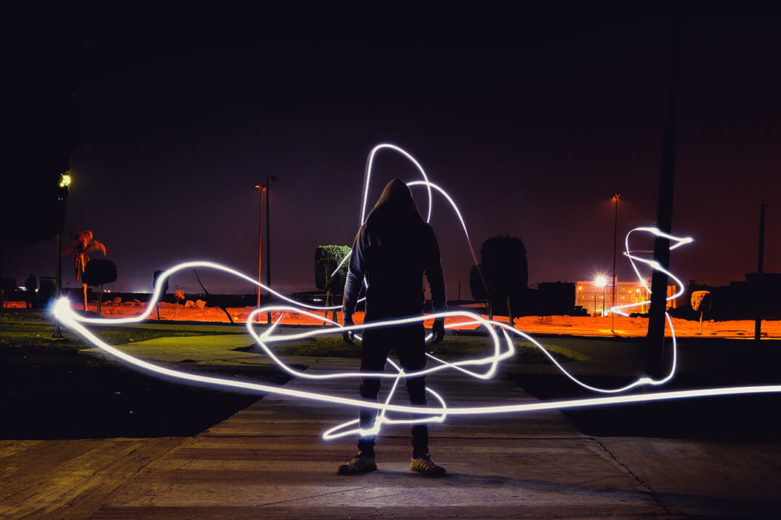
Beyond our Reach
“Where did the years go?”, I constantly ask myself.
I feel like yesterday I was in college. For some reason college feels like yesterday and high school feels like a lifetime ago. I’m not sure why it feels that way, but it’s undeniable.
I can’t figure out time. It’s too complex, too stubborn, and beyond our reach. The whole Butterfly Effect is interesting, but any story that has ever attempted time travel has failed, although I could watch Back to the Future again and again. I think we long for time travel with the reason being, so we can change decisions in our past that didn’t go the way we would have hoped. I’m saying most people, if not everyone, feels this way whether they admit it or not.
So, back to my original question of, “Where did the years go?” Well, you could say they were just lost, e.g. someone’s mind was focused elsewhere. Maybe time ate the years. *shrug* Time never stops, so surely it’s hungry. I don’t really know.
I can’t figure out time. It’s too complex, too stubborn, and beyond our reach.
I’ve time traveled in my dreams before. It was extremely cold and eerie and I woke feeling very insecure and exhausted. If we ever achieve time travel, it’s probably going to be mentally exhausting if not fatal. It’s just fiction at this point, but thinking deeply about it exercises our minds.
Anyway, you can actually slow time down by focusing more on the here and now, which can be difficult for many of us (myself included), but it’s important nonetheless.
Seriously though, get off the phones and pay attention to your kids and/or your spouse. That’s what we’re constantly reminded of anyway, right? That’s what I’m reminded of. When my mind wanders, the time seems to magically disappear and I come back to the present feeling a bit regretful that I wasn’t here when I should have been. You may not work that way. We are all different. Some of you know exactly what I’m talking about though.
Anyway, practice being there mentally. You won’t notice the years pass, but you might notice the hours in a more memorable way.
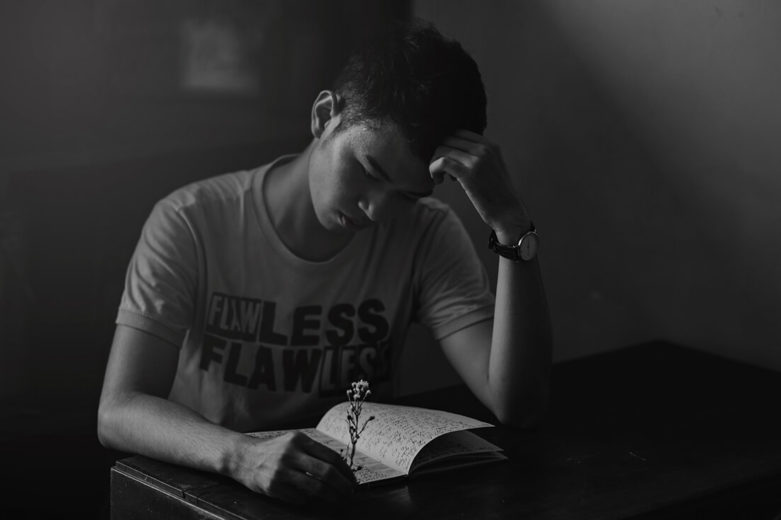
Purpose to Pain
Emotional pain. Sadness.
For me, things are different now. I’m starting to understand these things (emotional pain and sadness) better, at least how I feel them, but it can still be utterly confusing at times. I constantly see people take on pain and immediately withdraw, often for extended periods.
I do this same thing, but perhaps with different motivation. As I feel this emotional pain slip away from me, it’s all I can do to grasp it, to hold on to it. I don’t want it to leave. It’s become a sibling for me. It’s become my spark and even motivates me at times. That’s why it’s different for me. I’m comfortable with it. It’s like Nitrous oxide to my creativity. It allows me to open the door to my soul and share freely.
I’ve written before, in an earlier blog post, that I’d always be sad. For me sadness is part of me, part of my personality. Emotional pain is not sadness for me. They are two different things and they are mutually exclusive. What people fail to understand is that I’m sad and joyful at the same time. These things actively and constantly coexist within me. And please, do not confuse sadness with depression. Depression is a clinical diagnosis. Sadness is not.
I no longer relate to people who only want to be happy. Oddly enough, I was that person earlier in life. Purpose hadn’t come into focus for me as a young man. Nowadays however, purpose screams at me. It calls to me. It’s loud and in my face. Perhaps my sadness is even more tied to purpose than it is to pain, in the sense that sometimes the search for purpose is a sad and lonely venture.
Most people don’t relate (and that’s perfectly fine and expected), but I know a few who are reading this and shaking their heads, “yes” and saying, “I get it.” In fact, I spoke with a friend at church last week who I never expected to understand what I was talking about, but he totally got it.
Perhaps my sadness is even more tied to purpose than it is to pain.
I know other empaths who carry a lot of sadness with them (as I do). Accept the fact that it’s OK. Also know that sometimes emotional pain comes in and it’s louder and stronger than our typical sadness that we carry. I believe we can use this sharp emotional pain in a similar way we use our dull sadness. The sharp emotional pain isn’t meant to stay with us. It’s supposed to burst. Let it fuel great things in you, but let it go whenever it’s time for it to go.
Look for healthy outlets. Good things will happen.

Pain Channel
“You’re so creative, Matt!”, they say to me, while in the same breathe they ask, “Why are you in so much pain?” Heh. Wow.
If there’s one thing I’ve learned more about over the years, it’s pain. I’ve learned I can function with pain. I’ve learned I can succeed with pain. I’ve learned how to manipulate pain (that is, if the pain isn’t too intense). Highly intense pain can lead to a wrestling match, a brawl of sorts. What I’ve learned most about my pain however, is it’s a great source for creativity.
Whether it be writing, music, visual design or any other type of creative outlet, I encourage you to reach deep into your emotions and feel for new avenues and fresh ideas. People will doubt you. They will gossip about you. Some will even shut you out and leave you. You don’t need those people. They don’t try to understand you and most importantly they can’t accept you. Their loss.
I don’t wish pain upon anyone, but I don’t have to, because we all have it. I’m simply offering you a perspective that says, “Don’t just be in pain, make it count. Do something great with it (or at least something fun and time-consuming)”
I’ll add that meditation, prayer, and physical exercise are key ingredients for channeling your pain in a healthy way.
I’ve learned that people will judge you and they will judge you QUICKLY, if not IMMEDIATELY. People of any religion. People of no religion. They judge all the same. You have two options: 1) You can allow their inappropriate, haphazard judgement to drive your decisions; or 2) You can drive and they can fall to the wayside. I choose option two. I have no time for haters. No time.
Don’t exist in a bubble of “what will people think”. Exist in a world of self-expression where you’re the one being fully transparent while the judges are all lying to themselves and putting on masks. Everyone is creative in some way. Don’t let others dictate where your creativity goes. Take it where you need it to go. This isn’t easy for some of us, but it’s so necessary. I’m getting there. I’m making progress. You can too.
Get better. Heal. Be real… Be you.

Cycle of Deceit
For nearly a year now, I’ve been dealing internally with the fallout from three very painful relationships that were lost or never materialized or whatever. I’ve been in a vicious cycle (of deceit) that consists of the following emotional intervals: Animosity, Empathy, Resentment, Self-doubt, Withdrawal, and Sadness. It’s taxing and it’s draining, but it can be life changing if you are willing to look inwardly.
Many people go through this type of struggle and easily move on to permanent liberation from it. That’s awesome if you are wired in a way that you can achieve such an awesome escape. I sincerely applaud you and I’m even a bit envious. If “just move on” or “just get over it” is your mantra, then that is WONDERFUL. That means you don’t have to deal with the same vicious cycles that many of us do, however if your sentiment is that EVERYONE should be able to just move on or just get over something, then you are living in a detached reality. Our reality doesn’t work that way.
I’m writing this in an effort to exude my feelings that are consistently suppressed behind my inability to accurately express and explain them. I don’t want to hold onto things. Inability to expunge negative feelings from my mind (and even my heart) is not something I desire. I envy my wife because she can quickly let things go, but I also understand that we are all different and as one trait causes us to struggle another helps us to thrive. Perhaps it’s the relationship between defects and virtues, but that’s another discussion for another day.
I’ll refer throughout this post to “my current situation”. By that, I’m referring to the current challenge I’ve been dealing with internally for quite some time.
The amount of time I spend in each interval of the cycle varies, not only as the intervals relate to one another, but also from iteration to iteration.
Animosity
I’m going to start with animosity because of all the emotions in this cycle, it’s the one that I like the least and fear the most. You can define it as “strong hostility”. Wow, those are two very powerful words. What this looks like in my current situation is, “I can’t believe someone could treat me that way. How dare they? What did I do to deserve such ugliness, such disdain and disrespect. Animosity, like most negative emotions, has tunnel vision. It only focuses on self. It doesn’t consider the other person or their past, pain, or experiences. Luckily for me, in my current situation, I’m in and out of this emotion very quickly and on to the next, more desirable emotion, empathy.
Empathy
Growing up, I never heard the word “empathy”. I saw a lot of anger and resentment, but not much empathy. Empathy can be described as the ability to understand and share the feelings of another. Empathy is a positive emotion. You have to be deliberate with it and most of all, you have to humble. There is no empathy without humility. In my current situation this emotion is strong and keeps everything in perspective. It allows me to consider the other person and even make decisions that often put me at a disadvantage. Empathy is a strong emotion, strong enough to carry other emotions like resentment.
Resentment
I know what you’re probably thinking, “Isn’t resentment and animosity the same thing?” At a high level they are similar yes, however I believe that animosity comes first and can ultimately result in resentment. Resentment then spends a lot of time reflecting upon its subject. Where animosity feels more like anger, resentment feels more like regret (in a general sense toward a specific subject). In my current situation, it’s a replaying in my mind of the highlights of the conflict as they relate to the disadvantages I feel I was up against. It’s regretting my actions, their actions, the circumstance, and the feelings then, now, and in the future. In this cycle, resentment speaks loudly and always bounces back to me, causing the next emotion, self-doubt.
Self-Doubt
Perhaps the most internal negative emotion in this cycle, self-doubt says, “You have no worth. You are just an ant among seven billion other ants. This other person thought so little of you, that they did [hurtful action]. It is the most debilitating emotion in my current situation. It betrays me. It demotivates me. It hurts me. It makes me feel no more worthy than the dirt we walk on. It manifests itself in my outer-world through things like, “I can’t stand to look at myself in the mirror, so I’m going to completely change my look, grow a long beard and long hair etc.” Now you understand why my look changes so often. Naturally, self-doubt pushes me further and further into my mind and subsequently into the next point in this cycle, withdrawal.
Withdrawal
Fully propelled by self-doubt, along with a clear avenue paved by my introverted nature, I withdraw from the outside world. In my current situation this looks and feels really dark. It involves me spending a lot of time by myself, working, eating, and exercising by myself, not speaking or making much eye contact with people, and disconnecting greatly from people and the sensory world. Withdrawal naturally confuses my intuition because I start collecting too much data from within my own mind and not from actual things in the physical world. It can lead to overthinking and ultimately lands me at the final emotion in the cycle, sadness.
Sadness
Unlike some of the other negative emotions in this cycle, which are mostly supported by empathy, for me sadness isn’t really a negative emotion at all. It’s a soothing, relaxing emotion that bursts with creativity and supplements my empathy. It’s powerful and serves as a release of all the other negative emotions. If empathy supports the barrel (of negativity and pain), then sadness is the release valve that allows the negativity and pain to flow out (of the barrel). I don’t mind sadness and I view it differently than most people do, but I understand that a balance between sadness and happiness is important. In this cycle, as the sadness begins to run thin, and I begin to return to the sensory world, and perhaps reality, the animosity begins to creep back in and there you have this cycle of deceit.
Most often I don’t understand my feelings, however being the introspective person that I am, if I take the time and look inwardly, the riddle can be solved and I think it’s important to try to solve it. I know it’s not going to fix my current situation, but hopefully it’s going to eliminate a lot of confusion that I feel within myself.
The more we know about ourselves, the better we can be for everyone else.

Sweet In The Morning
You’re sweet like honey in the morning
When the day starts with fire
Kids up early and the cell phone alarming
You’re exhausted at night
As you lie down to sleep
Just seeking rest after a long prize fight
You keep it all from breaking down
When the chaos ensues
And it’s all crashing down
He might throw dirt in your face
Or utter words of hate
But the amazing part is you still show him grace
As they constantly change
With their humorous things
You seek to please them, all the same
For this, that, and a lot of stuff
Enough thanks cannot be given
Since we cannot thank you enough
Happy Mother’s Day!
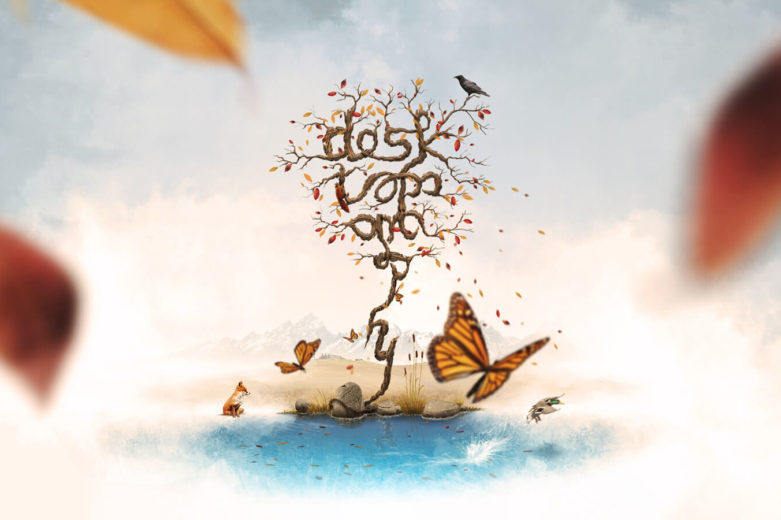
We Finally Meet
My mind is the battleground. War wages on between my imagination and reality. Strike, counter strike. We never rest. I’m awaken to images in my mind, being flipped through like a magazine, a thousand miles per hour. Back and forth. It’s overwhelming. It hurts.
Helpless, I’m stranded in the seam, the void, with nowhere to hide, nowhere to run. The dust never settles. The “what-ifs” of my imagination are bombarded by the “too-bads” of reality. This bloody war wages on. My end is near.
I’m neither here nor there. I’m nowhere, but I’m somewhere. Everyone is somewhere. Assaulted by time, it seems my only option is defeat. Yet, I carry on. I stand. I paint the happy face of a clown, but upside down. The tugging of a future’s past, on me, with every breathe.
I know reality wins. I’ve always known. I’m already standing at the finish line, watching it, watching my imagination fall. Misunderstood, I lie motionless, down in a hole. Reality has finally caught up to me. I’ve waited for what seemed like ages, but we finally meet.
We Meet
It’s nice to meet you. I’ve watched you battle fiercely from a distance. You were relentless. It was an amazing spectacle. I didn’t join you because I found a place I liked better, a place where rules had no meaning, a place where the impossible became my true reality. I didn’t join you because I fell in love with the idea that I could do amazing things, and I did amazing things, in spite of you. So, as much as I’d love to stay and chat with you, I’m going back there and this is the last time you’ll see me. Good luck.

The Prison She Chose
As I inquired about the emotional state of his wife, I was taken aback by his response. “She gets upset, making comparisons to what others have. Don’t let it bother you.”, he said, insinuating that she was somehow at fault. It was raw pithiness. He gave absolutely no concern to the fact that his wife might be very upset. His immediate goals were to dismiss her emotional state and tell me how busy having a child had made his life. Unfortunately, he was far too immersed in his own being that he failed to recognize our family dynamic, which consisted of three children, one of which has special needs. I’d seen this look before though, this attitude, this dismissal of emotional needs of a spouse. It sickened me.
Many years earlier it was in fact my own father who had exuded such passive-aggressive arrogance toward a woman facing similar anxieties. I had grown to despise this self-righteous, male-dominant, bread-winner attitude. And now, this time it was effecting me in a completely different way. That’s right, this time I was the one in crisis who desperately needed this type of man to actually be a man for once.
Sadly, some men think being nice and cool and chasing boyhood fun is more important than looking their wife in the eye and putting her first in his life. Even sadder is when said wife claims to stand-up for human rights, or more notably women’s rights, yet this control continues to shackle her without her even realizing that she is in fact shackled. Still, I don’t place all the blame on her. To the contrary, his arrogance carries this and owns it!
Such arrogance is destined for demise. I can clearly and openly say this because I’ve seen it with my own eyes and I’ve experienced it, as a son, with my own heart. Reality, however is that she broke free from one prison only to arrive in a timely manner at this new, more decorated version.
I sent so many prayers up for so long that I literally heard God say, “Your prayers have been received. Now I want you to pray for something else.” I did everything I could. I offered all the care I had. I gave all the empathy possible. Still, I was helpless. I was so helpless that it hurt. This was new hurt layered on top of hurt that already existed.
The truth is there are boundaries and when they are expressed and established I try not to cross them. Some boundaries aren’t clear, but they are loud, and those are the ones which are most easily heard.
Anyway, this post isn’t about me. It’s about what my intuition has shown me and how terribly tragic it is. I really can’t think of a more dreadful experience I could have had at a time when I really just needed an explanation and a little bit of peace. Eventually though I got an explanation, but it didn’t come from a person, it came from my subconscious.
I can’t free her from this prison she chose. Only she can do that. My deep hope is that she finds a way to freedom, but my heart tells me what reality already knows. She won’t.

A Dark Intuition
Intuition has been defined as a thing that one knows or considers likely from instinctive feeling rather than conscious reasoning. As an INFJ, my dominant introverted intuition (Ni) often gives me information subconsciously, which feels like it comes from nowhere. The reason it feels that way is that it is perceived subconsciously, which while it may be strange and confusing to others, makes perfect sense to me.
I’ve had a many moments in my life where I’ve gotten a feeling (sort of a spidey sense) about something, then that something happens. It has happened plenty of times and as I’ve gotten older, I’ve learned to trust it. I’m sure you’re thinking along the lines of “seeing the future”, but it’s not like that at all. In fact, rarely is it a clear picture. I’m not given “what”. I’m given “something”. In other words, it’s very abstract and it’s based on patterns, but it’s still a bit inexplicable. It’s usually future oriented too, unlike hindsight which is past oriented.
A few times though, my intuition has gotten real, if not dark. One occurrence was right before my friend was diagnosed with cancer, then again right before my son was diagnosed with a brain tumor, and once again when I envisioned a friend couple divorcing with no conscious knowledge of any problems in their relationship. I just knew.
For the sake of a lengthy post and a lot of repetitive information, I’ll just talk about the time leading up to my son’s diagnosis of a malignant brain tumor.
I Just Knew
It was early February 2009. I knew something was coming. I didn’t know what, but I just knew and I knew it had something to do with my second son. It hit me as I stood in the “hallway” of our small apartment. I got a sickening feeling in my stomach from it. It was with me for a moment. It was as real as anything, but it wasn’t clear. It was real though. Then, it was gone. The information I was given was still with me, but the feeling was gone. See, this is the thing that people don’t understand about this type of intuition. You usually don’t understand it, but it’s always real. In many cases, there’s not even an action that needs to be taken, as was the case on that day.
I remember reading about a friend’s diagnosis with cancer the following day. It saddened me deeply. I don’t know if this news provided more pieces to the pattern, but thoughts of my son having cancer were there, faintly if not sub consciously. They were there though. I felt them. Then it happened. A few days later I got the call to come home immediately, that something wasn’t right with our son. It had started and I knew. I just knew. The impact of the news was still emotionally unbearable though.
To make a long story short, our second son was diagnosed with a life threatening malignant brain tumor. Honestly, it was all so much heavier than the intuition set it up to be that I didn’t think too much about the sickening feeling I’d had less than a week before. We were just focused on the battle at that point. And now, years later, as I continue to learn more about myself, after the bloodiest part of the battle, after possible PTSD, I can revisit it and remember it better.
So, I don’t take my intuition lightly. Whenever I get these overpowering feelings that something is going to happen or someone is going to do something, I make the appropriate preparations for what I perceive, at least abstractly, is going to happen.
For more information on introverted intuition, checkout this article at Megan Malone’s INFJ Blog.
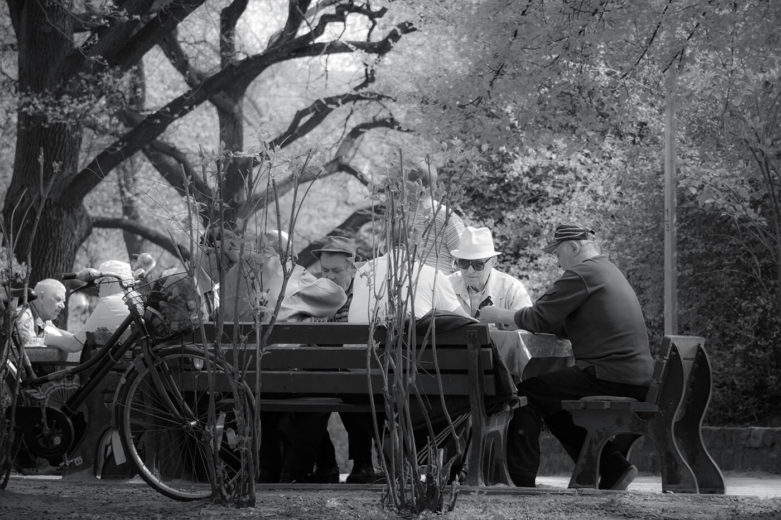
Mutual Affection
Amid my struggles with sadness earlier this year, I’ve thought a lot about friends. I’ve pondered, “What is a friend to me?” and “What defines a friend?”. Is a friend someone who helps you? Is a friend and an acquaintance the same thing? I feel like everyone has different opinions or definitions of what a friend is. Does the frequency or means through which you interact with someone determine whether or not you are friends with them?
Friendships can be quite volatile. So, what do we do when something doesn’t go as planned in our friendships? Do we withdraw silently? Do we confront that friend? What happens to the relationship? Who is owed what? That last question may be the most important. It involves expectations, which are often at the core of disruption in relationships.
With so many different personality types, people deal with conflict in so many different ways. It is complicated! It’s layered, like an onion! The thing we absolutely cannot do is expect others to react the way we would. In most cases, the other person involved is simply not going to react as we would have. We must try our best to see things from the perspective of others. This doesn’t mean, we accept toxic or abusive behavior, but as a first step, we should try to understand how they see the situation. Then we can make a call on whether or not it’s healthy. Often times it is not healthy, but that can’t be determined from across the river. Assuming you agree with me on that point, my next question would be, “How do we hold others accountable in friendships when things do go bad?”
Alas, we arrive at this mysterious, transparent thing in relationships commonly referred to as “boundaries”. Boundaries are important for many reasons. One reason is that not only should we handle our relationships with care, but we have to take care of ourselves. In this breathe, we set boundaries so that we can accomplish this. Boundaries go hand in hand with friendship. What you deem acceptable may not be acceptable to a friend and it’s not your job to determine whether their boundaries are appropriate. If you feel like the boundaries that are set by a friend are inappropriate, then as friends you’re certainly within your right to discuss it, but to carry an expectation that a friend should adjust their boundaries to suit your feelings is irrational at best.
A Google search for the definition of a friend yields the following result.
A friend is a person whom one knows and with whom one has a bond of mutual affection, typically exclusive of sexual or family relations.
This makes sense to me as a simple definition, but in reality a friend through and through can be summarized with a bit more explanation. There’s also the the age old debate on whether someone is a friend or an acquaintance and perhaps this is something that an individual defines for themselves. Of course, a friendship involves more than one person, so we absolutely have to consider that each person in the friendship may have varying definitions of friendship. Take for instance a relationship where one person’s definition of acquaintance is actually in the range of the other person’s definition of friendship. Expectations could vary greatly in such a situation, thus allowing conflict to more easily enter.
Ultimately it’s not my place to define what friendship means to another person. I can however, define what friendship means to me. In other words, I can tell you the expectations I’ve placed upon myself as to how I treat my friends, so that’s what I’ll do.
As a friend, I expect myself to comfort you, show you respect, help you with self-improvement, have a good attitude toward you, and build you up. I’m to make you feel wanted. I’m not to create conflict with you or give your misery or heartache. In no way should I create toxicity in your life. I’m to honor you and show as much courage as I can with regard to the relationship. I’m to be brave, honest, and transparent, ensuring that you are taken care of. Christ said to love our neighbors as our self. This seems to be the basic foundation of a friendship. As with strangers, I’m to show my friends empathy, sympathy, compassion, humility, and forgiveness. Above all else, I’m to put my friends and their well being ahead of my own. Selflessness is the cornerstone of any good friendship.
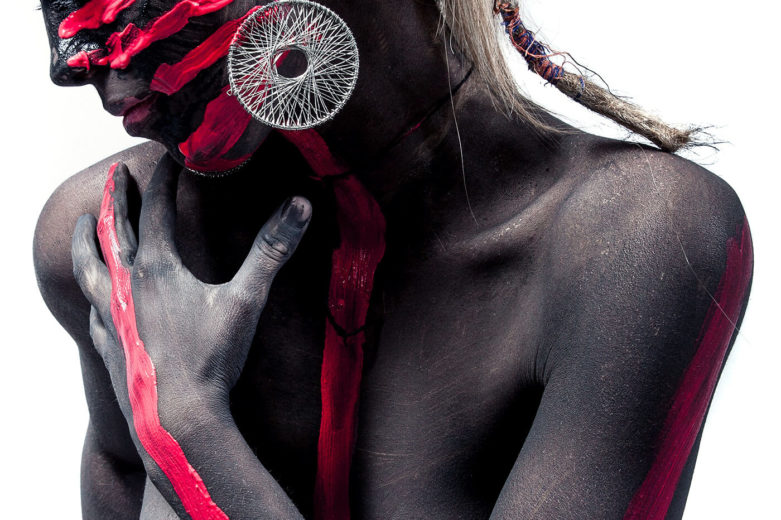
The Chill of Vulnerability
When tragedy enters our lives, it causes us to realize how strong or shallow our relationships really are. There are no shortcuts. No escapes. No looking away. There is weakness, fear, and trembling, and if we are willing to face these things and open ourselves up to others, then there’s also vulnerability. When we let others draw close enough to peer at our quirks, shortcomings, and failures, we run the risk of having our personal imperfections scare them away. We can expect that they’ll also pass judgement upon us. Or even worse, we open ourselves up to pain if they leave us, either purposefully or not.
Vulnerability can be a beautiful staple among believers. True community can be birthed only from openness. When we let others see behind our facade and we say, “I am broken”, we take the first step toward fixing us.
Sharing our true selves with others, as I have found, helps us know we are not alone. The body of Christ provides the nutrients it takes to heal and care for its limbs, if we stay connected. The gospel transforms our insecurities by revealing that we are not defined any longer by our quirks or flaws, but by God’s acceptance of us. He knows our deepest, darkest secrets, yet still chooses to love us. When everything is stripped away, this is all that remains. Knowing our true identity helps us pursue vulnerability in our local communities of faith.
Opening ourselves up to others can open a window to grace, allowing a breeze of connection to pass through to our soul. We know we have problems, but we also understand the reality grace offers those problems. This allows us to both rely on God’s grace as well as offer it to others. Openness can be frightening! You feel completely naked, but I believe there is a direct correlation between how much we are willing to share and how much we are able to grow. Vulnerability provides us with an incredible opportunity to take ourselves to the next level.
Of course, we must understand the risks involved. We could be mocked, manipulated, or even scare off those who don’t understand that we are actually being genuine beyond their understanding. In my experience though, vulnerability is a powerful tool that allows us to put our fears aside and reach otherwise unattainable goals.
Honesty allows us to be transparent.
Transparency leads to openness.
Openness provides a path to vulnerability.
Vulnerability makes us stronger.
Don’t let the chill of vulnerability stop you, just be prepared to see it through to something great!

The Thing About Pain
It seems that we live in a time, especially with social media, text messaging, email, i.e. written, instant, long distance communication, where it’s quite difficult to tell whether someone is in pain, more specifically emotional pain. As someone who is an extroverted feeler, I typically sense and absorb the emotions of others. Because of this, I’m sensitive to the emotional pain of others. My tendency is to offer support and encouragement as soon as possible.
You Don’t Simply Move On
Many times extroverted feelers will change the mood to be more upbeat in these situations, but I tend to draw the person in and grieve with them before even thinking about changing the mood. The reason for this is that I understand emotional pain, in most people, needs attention. The majority of us don’t just “move on” from emotional pain. Sorry, it doesn’t work that way. People who think it does work that way have no business counseling those who are in pain and generally come across and insensitive, and often make situations worse than they were before.
There are also those who seem to require you to somehow explain or justify your pain, dismissing it as if it didn’t even exist if they don’t agree that you should even be in pain. We’ve all heard it right, “Hey, I know you’re in pain, but [ insert pithy comment suggesting you just forget the pain and simply walk away from it ].” It’s sad that we live in a world that lacks empathy this way.
Pain Doesn’t Require Justification
In another article that I recently wrote, I stated the following:
Pain is pain. It does not care about where it came from. It could care less about “the why” or “the how”. It just exists and really the only thing that can kill pain is time, but time is usually not on our side, so we do what we can to suppress pain. Someone else’s opinion of why you are in pain is completely useless and irrelevant. Even your own reasoning of why you are in pain is often irrelevant. Pain usually comes out of nowhere, having a field day with causality, floating through expectation, then action, then consequence, and into reality. So never, ever look at someone’s pain (or your own pain) and think since you don’t understand it that it’s not real. If you do, you’re quite simply ignorant in that you’re misunderstanding what pain is, how personal and focused it is, and how sensitive it is.
Nobody’s pain, specifically emotional pain, requires justification from anyone or anything. Period.
I’m of the mindset that if you can’t sense or feel someone else’s pain, then perhaps you shouldn’t offer advice or counsel to them, instead bring someone else into the picture who can help them in the way they need to be helped. The sad truth is most people simply do not care or are too busy dealing with their own problems or aspirations. I just wonder how many people who were borderline suicide victims (yes victims) could have been saved if only enough attention, empathy, and energy had been directed toward them.
We should see people through their pain. We should check on them early and often. People want to know that everything is going to be OK. This is what gets people through depression. It’s called hope. Many of us are the “counseling” type and we understand the fragility of it. Saying things like, “Yes, we are all in pain” doesn’t help those who are reaching out. They aren’t asking you to measure their pain. They are asking you to validate their pain, meaning they want you to admit the the pain is real. From there they want you to support them, meaning walk with them, encourage them, not just once, but every day, often many times a day, for months if not years. I mentioned earlier that it takes energy. This is what I’m talking about.
That’s the thing about pain. It demands to be felt.